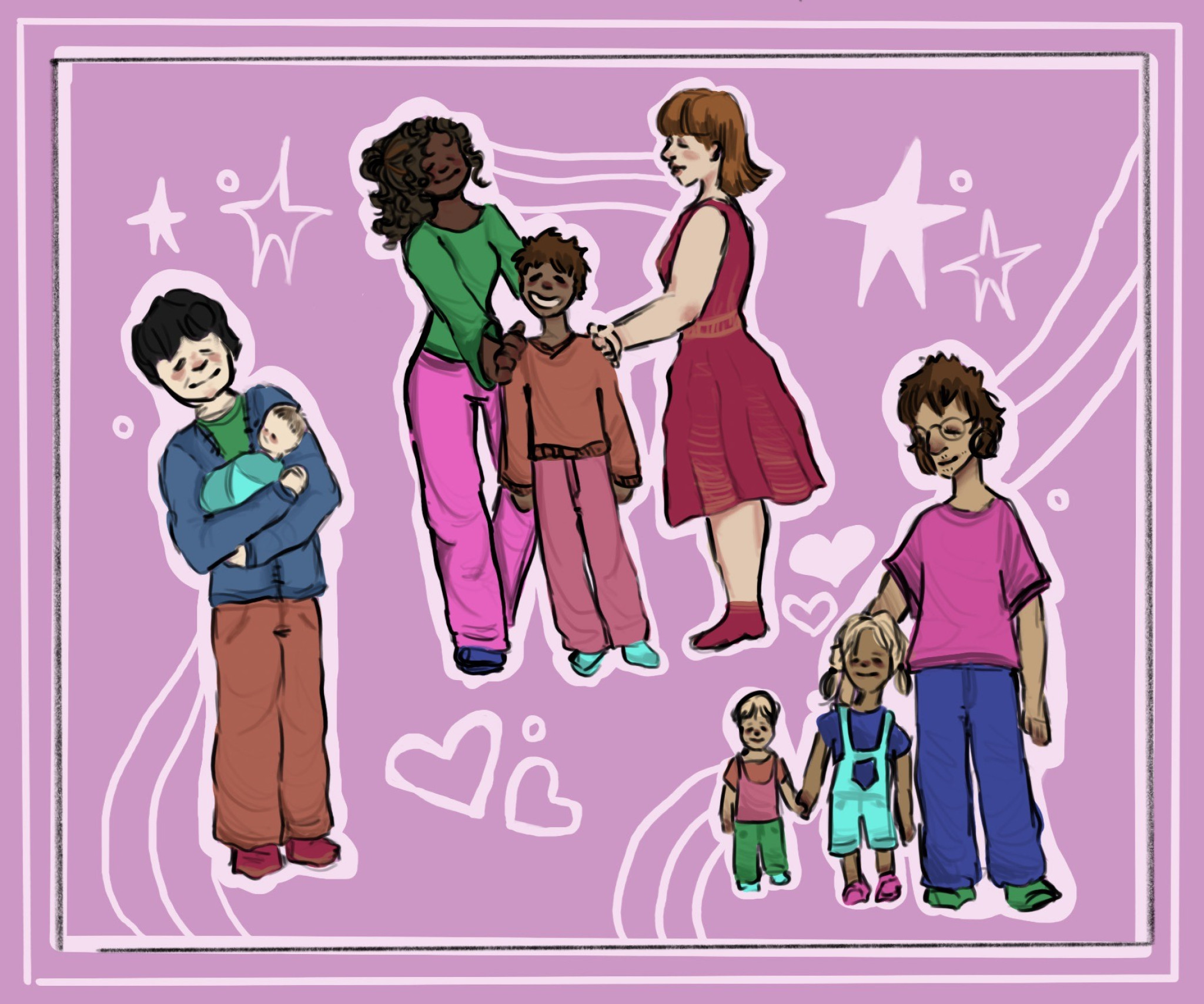With Mother’s Day having just passed, it's time to reconsider the relevancy and inclusivity of holidays like Mother’s and Father’s Day. All kids, not just ones with traditional households, should be encouraged to find ways to celebrate their parents.
In 2015, only 62 percent of kids in the U.S. lived with two married parents; an all time low since 1960. Additionally, in 2019, 14.7 percent of gay couples, which is around 161,700 couples in the U.S. were raising children, and 23 percent of kids in the U.S. live with just one parent. With the number of non-traditional families quickly growing, we should consider how Mother’s and Father’s Day can become inclusive to all families.
Mother’s Day and Father’s Day can promote the idea that there is only one “right” family. Obviously this can cause great emotional harm to students who don’t have a traditional family. This can be mitigated by opening up space for discussions where everyone can speak on what the holiday means to them. This is also a great way for students to learn about other family situations.
During these types of holidays, kids without a mom or dad present in their life may feel excluded. Celebrations and activities at school, such as bring your mother to school day, may remind kids without mothers of how they’re viewed as “different” from other students. To make Mother’s and Father’s Day more inclusive, students should be encouraged to celebrate it in different ways. For instance, children without mothers can use Mother’s Day as an opportunity to celebrate other maternal figures in their lives. Activities at school should encourage this, and allow students the room to explore other possibilities or opt out if they want to.
Unfortunately, it’s unlikely that official holidays will become more inclusive anytime soon. Mother’s Day became a national holiday back in 1914, and Father’s Day followed 58 years later. Both holidays are observed worldwide, so widespread change would be difficult. However, teachers can still implement new holidays in their classroom to promote inclusivity. Making a day for non-binary parents or other guardians can help kids feel more comfortable about their family and educate other kids about other family structures. Although these might not become national holidays, they can still teach kids in the classroom about different non-traditional families and genders outside the gender binary.
Mother’s Day and Father’s Day can still be viewed as great holidays with a beautiful meaning, while we acknowledge that they aren’t always inclusive to people with non-traditional families. Luckily this problem can be partially remedied. Discussing different family structures during this time, and allowing people to celebrate in different ways are easy ways to help everyone feel included. Every family deserves to be celebrated, and a slightly adjusted Mother’s and Father’s day can be part of that.





